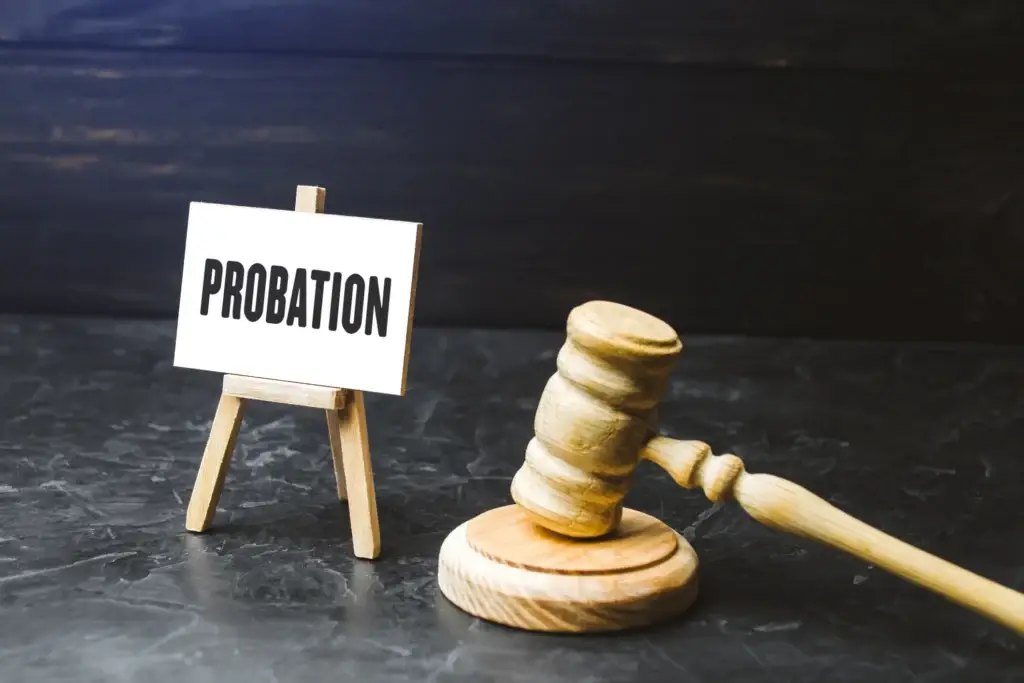April 21, 2025
How to Verify if Your Online Alcohol Awareness Class is Legitimate and Court-Approved

Navigating legal requirements can be stressful, especially when it involves court-ordered classes. If you’ve been mandated by a court, probation officer, or the DMV to complete an alcohol awareness program, selecting a recognized and legitimate online course provider is not just a recommendation – it’s a critical necessity. The digital landscape offers numerous options, but discerning between valid programs and those that might not meet legal standards is paramount to ensure your time and money are well-spent and, most importantly, that your completion certificate is accepted by the required authority.
Choosing the wrong provider could result in your certificate being rejected, leading to potential probation violations, extended legal issues, or delays in restoring privileges like your driver’s license. This comprehensive guide is designed to equip you with the knowledge and actionable steps needed to confidently verify the legitimacy, court approval, and state compliance of any online alcohol awareness class before you enroll.
Understanding the Absolute Importance of Legitimacy in Court-Ordered Classes
Before we delve into the verification process, let’s underscore why the legitimacy of your chosen alcohol awareness class is non-negotiable. The consequences of enrolling in an unapproved course extend far beyond simple inconvenience.
1. Ensures Court Acceptance and Legal Compliance:
The primary reason for verifying legitimacy is straightforward: your completion certificate must be accepted by the court, probation department, or DMV that issued the order. These entities have specific requirements for the curriculum, duration, and certification process of approved programs. A legitimate provider has gone through a rigorous approval process, confirming they meet these standards. An illegitimate provider cannot guarantee this, making your completion worthless in the eyes of the law. This could lead to significant setbacks, including:
- Your case remaining open.
- Being found in violation of your probation terms.
- Facing additional fines or penalties.
- Delayed reinstatement of driving privileges.
- Wasted time and the financial burden of having to take a legitimate course anyway.
2. Guarantees Quality of Education and Real Impact:
Legitimate online alcohol awareness classes aren’t just about fulfilling a requirement; they are designed to be genuinely educational and impactful. Approved providers adhere to strict educational standards, employing evidence-based curricula developed by experts. These courses cover critical topics such as the physiological effects of alcohol, the risks of impaired driving, the legal consequences of alcohol-related offenses, and strategies for making healthier choices. The ultimate goal of court-ordered education is to promote behavioral change and reduce the likelihood of future offenses.
Learn more about how accredited, high-quality classes are designed to effectively address underlying issues and reduce the rate at which individuals reoffend in our detailed article: How Alcohol Awareness Classes Can Reduce Recidivism.
3. Protects You from Scams and Fraudulent Providers:
The online space, unfortunately, can be a breeding ground for scams. Some websites may falsely claim to offer “court-approved” courses without possessing the necessary accreditation. These fraudulent providers often lure individuals with unrealistically low prices or promises of instant, effortless completion. Enrolling with such a provider is a risk that can cost you not only the course fee but also valuable time, forcing you to repeat the process with a genuine provider to satisfy your legal obligations. Verifying legitimacy upfront is your best defense against these pitfalls.
Key Indicators: What to Look for in a Legitimate Online Alcohol Awareness Class
Several clear and identifiable indicators can help you quickly assess the legitimacy of an online alcohol awareness course provider. Make sure any provider you consider prominently displays and can verify the following:
1. Explicit State Approval and Accreditation:
This is the single most important factor. A legitimate online alcohol awareness class will clearly state which specific state authorities have reviewed and approved their program. Accreditation isn’t a vague claim; it comes from recognized bodies. Examples of the types of authorities that grant approval include:
- State Departments of Motor Vehicles (DMV) or Department of Licensing: Often responsible for approving programs related to DUI/DWI offenses and license reinstatement.
- State Departments of Health or Behavioral Health: May approve programs as part of broader substance abuse education initiatives.
- County and Municipal Courts or Probation Departments: Many local jurisdictions maintain their own lists of approved providers specific to their court or probation requirements.
- State-Specific Governing Bodies: Some states have boards or departments specifically designated to certify and oversee alcohol and drug education programs.
Always choose providers who clearly display their approval status, specifying the state(s) and the exact authority within those state(s) that granted the approval. Reputable providers like Courseable understand the importance of this transparency and make their accredited status readily visible to reassure participants of their legitimacy and compliance.
2. Verification by Your Court or Probation Office:
One of the most reliable methods of confirming a provider’s legitimacy is to check directly with the source requiring the class. Courts and probation offices typically maintain lists of approved providers that they know meet their specific requirements. A quick call or email to your probation officer or the court clerk handling your case can provide definitive confirmation and peace of mind.
3. Clear and Transparent Provider Information:
Legitimate businesses operate transparently. A reputable online course provider will make it easy for you to find detailed information about their organization, including:
- A verifiable physical business address.
- Multiple contact options (phone number, email address, potentially live chat).
- Responsive customer support willing and able to answer questions about their accreditation and course details.
- Information about the company’s history and mission.
Be wary of websites that lack clear contact information, use only P.O. boxes without a physical address, or make it difficult to speak to a real person. Lack of transparency is a significant red flag.
4. Professional Website and Course Platform:
While not a guarantee of legitimacy on its own, a professionally designed, easy-to-navigate website and a robust, secure course platform are often indicators of a legitimate operation. Look for sites that are well-maintained, provide clear information about the course structure, duration, and learning objectives, and utilize a secure payment gateway.
Be wary of websites that lack clear contact information, use only P.O. boxes without a physical address, or make it difficult to speak to a real person. Lack of transparency is a significant red flag.
Your Step-by-Step Guide to Verifying Class Legitimacy
To confidently select an online alcohol awareness class that will meet your legal obligations, follow these detailed steps:
Step 1: Thoroughly Review Your Court Order or Probation Requirements:
Before you even start searching for courses, carefully read every detail of the documentation provided by the court, probation department, or DMV. Look for specific requirements such as:
- The required number of hours for the class (e.g., 4-hour, 8-hour, 12-hour, 24-hour).
- Any mention of specific providers or a list of approved agencies.
- Mandated curriculum topics.
- Requirements for the completion certificate (e.g., notarization, specific information to be included).
- Deadlines for completion. Understanding these specific needs is your first step in narrowing down legitimate options.
Step 2: Scrutinize the Provider’s Accreditation Claims on Their Website:
Visit the website of the online course provider you are considering. Look for a dedicated section or page detailing their accreditation or approval status. Legitimate providers will clearly state:
- The name of the state(s) they are approved in.
- The specific approving authority within that state (e.g., Texas Department of Licensing and Regulation, California DMV, a specific County Court).
- Often, they may reference specific state statutes or regulations their course complies with.
- Reputable providers may even provide links or offer documentation (like a certificate of approval) to back up their claims upon request.
For example, Courseable provides a dedicated page detailing its approved status, making it easy for users to find and verify the necessary information before enrolling. You can find this detailed information on their Court-Approved Online Alcohol Awareness Classes page Courseable’s Court-Approved Online Alcohol Awareness Classes page.
Step 3: Cross-Reference with Official State or Court Websites:
This is a crucial verification step. Many state DMVs, Departments of Health, or individual court websites maintain public lists of approved alcohol awareness and DUI program providers.
- Navigate to the official website of the relevant state department or the specific court that issued your order.
- Look for sections related to “DUI Programs,” “Alcohol Education,” “Court-Ordered Classes,” or “Approved Service Providers.”
- Search for downloadable lists or use any searchable database they provide.
- Check if the provider you are considering is explicitly listed on this official resource. If they are, this is strong confirmation of their legitimacy for that specific jurisdiction.
Step 4: Directly Contact Your Probation Officer or Court Clerk:
If you have any doubt, or if your court order came directly from a judge or probation officer without a clear list, contacting them directly is the most definitive verification method.
- Call the probation department or the court clerk’s office.
- State clearly that you need to verify if a specific online alcohol awareness course provider is accepted for your case.
- Be prepared to provide the name of the provider, the specific course name (e.g., “8-Hour Online Alcohol Awareness Class”), and potentially the course provider’s location or website address.
- They can look up the provider based on their approved lists or directly inform you if that specific course meets their requirements. Getting this confirmation verbally or even via email (if they offer it) is highly recommended before paying for the course.
Recognizing Red Flags: Warning Signs of a Potentially Illegitimate Provider
As you conduct your verification, be vigilant for these common warning signs that could indicate a provider is not legitimate or accredited:
- Lack of Specific Accreditation Details: Vague claims like “nationally recognized” or “accepted in many areas” without naming specific states or approving authorities are major red flags. Legitimate providers are precise about their approvals.
- Unrealistically Low Pricing: While online courses are often more affordable than in-person classes, prices significantly below the average market rate can be a sign of an unaccredited provider who hasn’t invested in developing a state-compliant curriculum or obtaining official approval. Be suspicious of deals that seem too good to be true.
- Poor or Non-existent Customer Support: If you can’t find a phone number, email address, or if your inquiries about accreditation go unanswered or are met with evasive responses, this is a serious concern. Legitimate providers offer accessible and helpful support.
- Promises of Instant or Effortless Certification: Legitimate alcohol awareness courses, especially court-ordered ones, require a specific number of hours of engagement and successful completion of assessments to ensure you’ve absorbed the material. Beware of providers promising instant certificates simply for paying or clicking through screens without any real learning or testing involved. This is a strong indicator the course does not meet legal educational standards.
- Generic or Unprofessional Website Content: Typos, grammatical errors, poorly organized information, or a website that looks hastily put together can suggest a lack of professionalism and potentially a fraudulent operation.
- No Physical Address or Vague “Contact Us” Information: Legitimate businesses typically provide a verifiable physical address.
The quickest and most reliable methods are to:
Check the provider’s website for explicit, specific state/authority approval claims.
Cross-reference those claims with the official website of your state’s DMV, Department of Health, or the specific court involved in your case.
Call your probation officer or the court clerk directly to confirm acceptance.
If you complete a class from a provider that is not approved by the authority requiring the course, your completion certificate will likely be rejected. You will then need to enroll in and complete a legitimate, approved course, costing you additional time and money and potentially leading to penalties for failing to meet your deadline.
Typically, a class approved by a state-level authority (like the DMV or a state department) is accepted by most courts within that state. However, some individual county or municipal courts may have their own specific lists of locally approved providers. To be absolutely certain, it is always best practice to double-check acceptance directly with the specific court or probation office handling your case, even if the provider claims state-level approval.
The validity period of an alcohol awareness class certificate can vary depending on the court’s requirements and the specific reason for taking the class. Some courts require completion within a specific timeframe, and the certificate itself might be considered valid for fulfilling a requirement only for a limited period after completion (e.g., 1-2 years). For detailed information on certificate validity, consult your court order or see our article: Alcohol Awareness Class Certification: How Long Is It Valid?
The Tangible Benefits of Choosing Legitimate Online Alcohol Awareness Classes
Beyond simply meeting a legal requirement, selecting a legitimately accredited online alcohol awareness class offers distinct advantages that contribute to a smoother process and a more meaningful educational experience:
- Guaranteed Court Acceptance: This is the most significant benefit, providing immense peace of mind. Choosing a provider with verified state or court approval ensures that your certificate will be accepted, preventing frustrating delays and potential legal issues.
- High-Quality, Impactful Educational Experience: Legitimate providers invest in developing comprehensive, engaging course content that meets educational standards. You’ll gain valuable knowledge about alcohol misuse, its consequences, and strategies for positive change, fulfilling the true intent of the court order – not just checking a box.
- Reliable and Accessible Support: Accredited providers offer professional customer service to assist you with technical issues, questions about the course content, or concerns about certificate delivery.
- Efficient and Immediate Certification Process: Upon successful completion of a legitimate course, your certificate will be issued promptly. Many online providers offer immediate digital certificates, which is crucial for meeting court deadlines. Tips for Successfully Completing Your Alcohol Awareness Class
Accredited providers offer professional customer service to assist you with technical issues, questions about the course content, or concerns about certificate delivery.
Additional Resources to Support Your Compliance
To further assist you in fulfilling your court-mandated requirements and making informed decisions, consider exploring these helpful resources:
- A guide on finding state-approved online courses: Finding a State-Approved Alcohol Awareness Course Online
- Information regarding how long your completion certificate is valid: Alcohol Awareness Class Certification: How Long Is It Valid?
- Practical advice for successfully navigating and completing your online class: Tips for Successfully Completing Your Alcohol Awareness Class
Final Thoughts: Prioritize Legitimacy for Compliance, Education, and Peace of Mind
When faced with a court order to complete an alcohol awareness class, your priority must be selecting a provider whose legitimacy is unquestionable. Taking the time to verify accreditation and court acceptance is a small effort that prevents significant potential headaches down the line. A legitimate course not only ensures legal compliance but also provides valuable education that can contribute to positive personal changes.
At Courseable, we understand the importance of trust and compliance. Our online alcohol awareness courses are developed to meet rigorous state standards and are fully accredited and trusted nationwide. We are committed to transparency, providing clear details about our approvals, offering excellent customer support, and ensuring you receive your certificate promptly upon successful completion.
Ready to confidently and legitimately fulfill your court-mandated alcohol education requirements? Enroll today in Courseable’s Court-Approved Online Alcohol Awareness Class
Disclaimer:
This article provides general information for educational and informational purposes only. It is not intended as, and should not be considered, legal or medical advice. Laws and court requirements regarding alcohol awareness classes vary significantly by jurisdiction and can change. Always consult directly with your attorney, probation officer, the specific court, or the relevant state DMV or licensing authority to confirm the exact requirements for your case and to verify the acceptance and legitimacy of any online course provider before enrolling.
Related Posts

Alcohol Awareness Classes and Probation: Understanding Your Requirements and Ensuring Compliance

How to Confidently Talk to Your Employer About a Court-Ordered Alcohol Awareness Class
Start Your Court Ordered Alcohol Class


